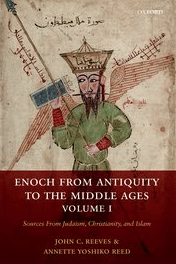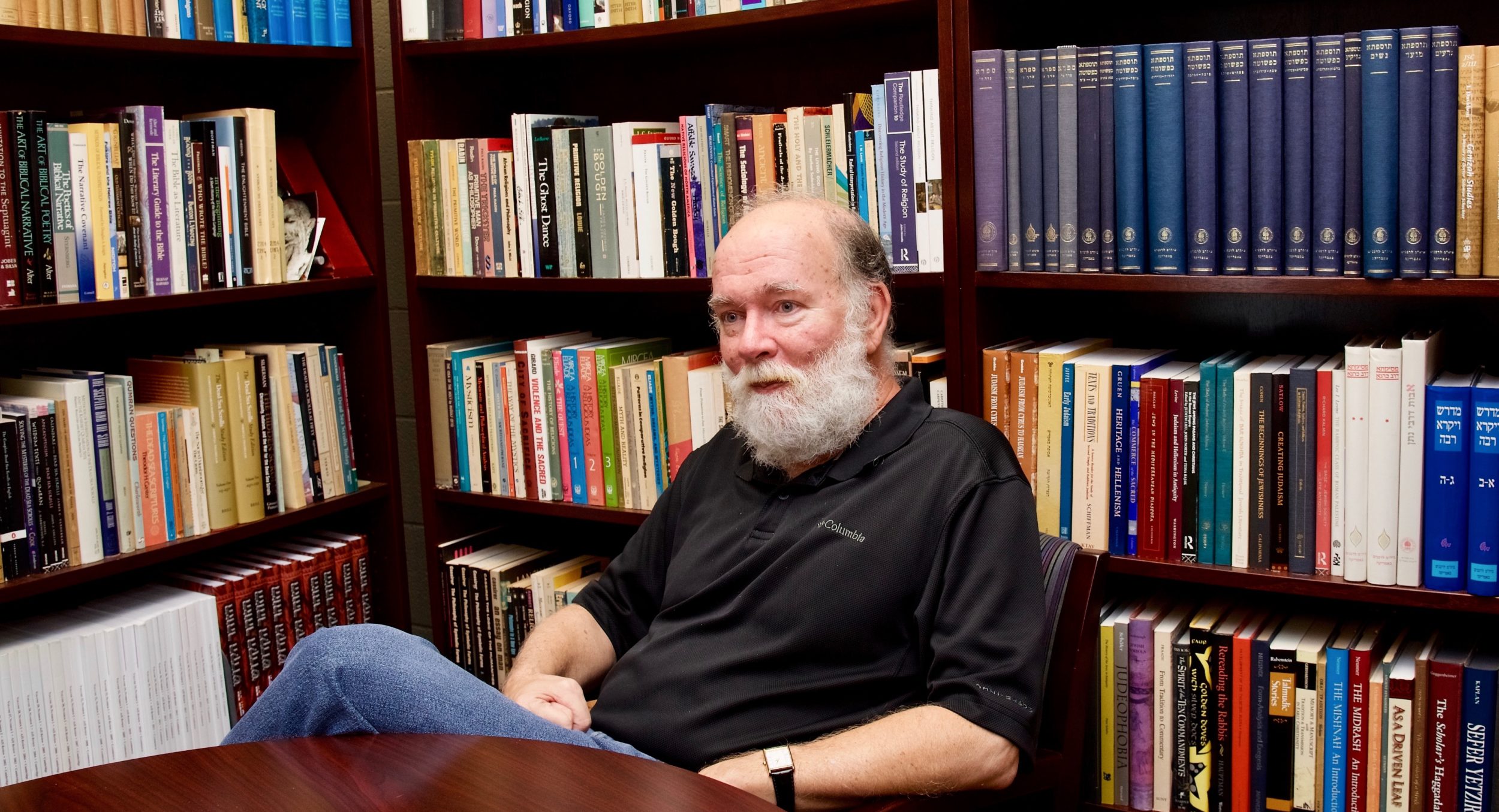John Reeves, Blumenthal Professor of Judaic Studies, and Annette Yoshiko Reed (New York University) have published a work they hope will provide historians of religion with a new tool to explore the intertwined histories of the major religious communities of the ancient and medieval Near East.
With the publishing of the first volume of Enoch from Antiquity to the Middle Ages: Sources from Judaism, Christianity, and Islam (Oxford University Press), Reeves and his co-author hope they have provided new resources to assess the intertextual relationships between different religious corpora and the major religious communities’ connected histories. Reeves details the work on his website.
This compilation and analysis focuses on a massive library of literature associated with the biblical character Enoch, which has been gleaned from Greek, Latin, Hebrew, Aramaic, Syriac, and Arabic language sources.
“The Enoch project is one that I’ve been working on for the last 25 years,” Reeves said in a 2016 interview about his work. “It consists of a collection of literature that’s either attributed to Enoch, or in some cases, just literature about Enoch that I’ve extracted from Jewish, Christian, Muslim, and gnostic sources from the Dead Sea Scrolls up to about the time of Christopher Columbus.”
Reeves emphasizes the importance of exploring the connections between different religions in the past, and the implications for today.
“With Enoch especially, a lot of the literature is along the lines of astronomical, astrological, and medical content that stands at the threshold of the beginning of scientific investigation in the West,” Reeves said then. “So to be able to trace how Enochic literature has passed between religious traditions or between thinkers across these religious divides is not only significant to our history, but it shows us that there is no reason the interactions between religions shouldn’t continue in today’s world.”
This intertextual study of chains of textual and symbolic traditions beginning with the book of Enoch holds several important implications, as it:
- Shows that the rich afterlives of Enochic texts and traditions can be studied more thoroughly by scholars of Second Temple Judaism and early Christianity as well as by scholars of late antique and medieval religions
- Cites all sources in their original languages and pairs them with a new English translation
- Emphasizes the cross-cultural and interreligious dimensions of Enochic literature through the ages.




 The volume provides a comprehensive set of core references for easy and accessible consultation. The authors indicate that: Specialists in the Second Temple period-the era in which Enochic literature first appears will be able to trace (or discount) the survival of Enochic motifs and mythemes within Jewish literary circles from late antiquity into the Middle Ages, thereby shedding light on the trajectories of Jewish apocalypticism and its possible intersections with Jewish mysticism. Students of Near Eastern esotericism and Hellenistic philosophies will have further data for exploring the origins of ‘gnosticism’ and its possible impact upon sectarian currents in Judaism, Christianity, and Islam. Those interested in the intellectual symbiosis among Jews, Christians, and Muslims in the Middle Ages-and especially in the transmission of the ancient sciences associated with Hermeticism (e.g., astrology, theurgy, divinatory techniques, alchemy, angelology, demonology)-will be able to view a chain of tradition reconstructed in its entirety for the first time in textual form.
The volume provides a comprehensive set of core references for easy and accessible consultation. The authors indicate that: Specialists in the Second Temple period-the era in which Enochic literature first appears will be able to trace (or discount) the survival of Enochic motifs and mythemes within Jewish literary circles from late antiquity into the Middle Ages, thereby shedding light on the trajectories of Jewish apocalypticism and its possible intersections with Jewish mysticism. Students of Near Eastern esotericism and Hellenistic philosophies will have further data for exploring the origins of ‘gnosticism’ and its possible impact upon sectarian currents in Judaism, Christianity, and Islam. Those interested in the intellectual symbiosis among Jews, Christians, and Muslims in the Middle Ages-and especially in the transmission of the ancient sciences associated with Hermeticism (e.g., astrology, theurgy, divinatory techniques, alchemy, angelology, demonology)-will be able to view a chain of tradition reconstructed in its entirety for the first time in textual form.



